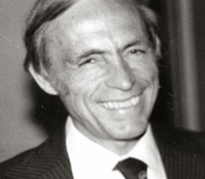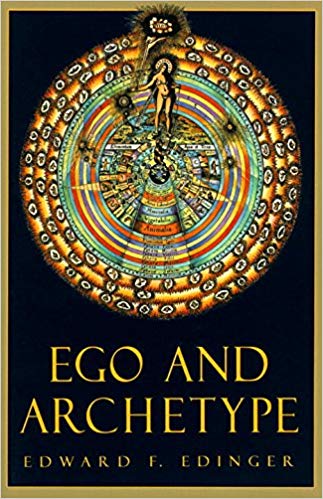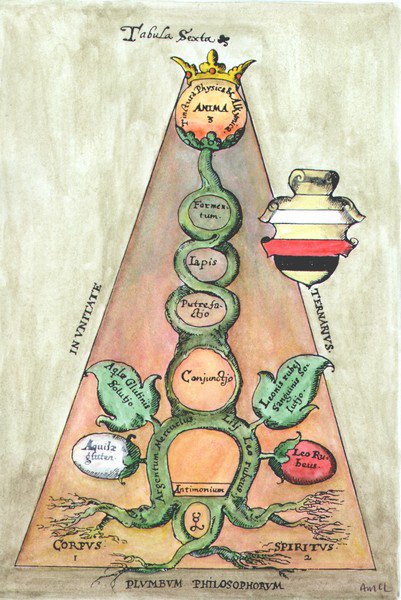Edward F. Edinger

For a generation, Edward F. Edinger (1922-1998) was at the forefront of those carrying out the work begun by the great Swiss psychiatrist, C. G. Jung. He is widely considered the most important Jungian Analyst that America has produced. Edinger taught that a person's greatest achievement is by nature an invisible one, a level of consciousness that moves civilization ahead. In that regard, Edward Edinger's achievement is inestimable. Dr. Edinger's seminal works include: Ego and Archetype (1972), Anatomy of the Psyche: Alchemical Symbolism in Psychotherapy (1985), Transformation of the God-Image: An Elucidation of Jung's Answer to Job (1992), The Eternal Drama: The Inner Meaning of Greek Mythology (1994), The New God Image (1996), and Science of the Soul (2002). Dr. Edinger received his medical degree from Yale University in 1946. He was a supervising psychiatrist at Rockland State Hospital in New York, a founding member of both the C.G. Jung Foundation and the C.G. Jung Institute of New York. He served as president of the New York Institute from 1968 to 1979. For the last twenty years of his life, Edward F. Edinger lived in Los Angeles. It was here that he continued to
analyze, lecture, and write most of his more than twenty books and many journal articles. Edinger wrote on four main topics: clinical, cultural, and alchemical issues; and Jung's myth for modern man, i.e. the psychological redemption of traditional religion. A unifying theme runs through them all, namely, the ego's relationship and encounter with the Self.
In the spring of 1995, a professional film crew interviewed Dr. Edward F. Edinger for an intended television series. The series did not materialize, but the interview was later published in book form as Science of the Soul along with other essays (edited by Sharp and Sparks, Inner City Books). Here is an excerpt of the interview titled, Part Three, "Social Implications," wherein Edinger explains the social relevance of the structure of the psyche. He asks: Why is it important to society that its individuals have a developed ego? What happens to the social fabric when the shadow is not known? And, most important, what occurs when the "religious myth" no longer carries the projection of the Self archetype and this inner Authority is projected onto outer persons who do not deserve it? The excerpt ends with a film clip of Jung announcing: "The psyche is the great danger. What if something goes wrong with the psyche?"
Book Title List
"An Outline of Analytical Psychology: Notes on Analytical Psychology" - 1968
"Anatomy of the Psyche: Alchemical Symbolism in Psychotherapy" - 1985
"Archetype of the Apocalypse: A Jungian Study of the Book of Revelation" - 1999
"Ego and Archetype: Individuation and the Religious Function of the Psyche" - 1972
"Ego and Self: The Old Testament Prophets" - 2000
"Encounter with the Self: A Jungian Commentary on William Blake's Illustration of the Book of Job" - 1986
"Goethe's Faust: Notes for a Jungian Commentary" - 1990
"Melville's Moby Dick: An American Nekyia" - 1975
"Science of the Soul: A Jungian Perspective" - 2002
"The Aion Lectures: Exploring the Self in C. G. Jung's Aion" - 1996
"The Bible and the Psyche: Individuation Symbolism in the Old Testament" - 1986
"The Christian Archetype: A Jungian Commentary on the Life of Christ" - 1987
"The Creation of Consciousness: Jung's Myth for Modern Man" - 1984
"The Eternal Drama: The Inner Meaning of Greek Mythology" - 1994
"The Living Psyche: A Jungian Analysis in Pictures" - 1990
"The Mystery of the Coniunctio: Alchemical Image of Individuation" - 1994
"The Mysterium Lectures: A Journey through C. G. Jung's Mysterium Coniunctionis" - 1995
"The New God-Image: A Study of Jung's Key Letters Concerning the Evolution of the Western Image" - 1996
"The Psyche in Antiquity: Book 1: Early Greek Philosophy" - 1999
"The Psyche in Antiquity: Book 2: Gnosticism and Early Christianity" - 1999
"The Psyche on Stage: Individuation Motifs in Shakespeare and Sophocles" - 2001
"The Sacred Psyche: Psychological Approach to the Psalms" - 2004
"Transformation of the God-Image: An Elucidation of Jung's Answer to Job" - 1992
"Transformation of Libido: A Seminar on C.G. Jung's Symbols of Transformation" - 1994


Dr. Edward Edinger’s Archives Digitalized and Online
We are proud to announce that Dr. Edward Edinger’s seminal body of work interpreting the concepts and discoveries of C.G. Jung has been digitally transcribed. These materials are now permanently offered for viewing at the Library of Congress located in Washington, D.C. and online. (www.loc.gov).
This Collection offers profound understanding of Analytical Psychology.
Over 3,000 items are available for scholars, analysts, and students of depth psychology to explore their interest in the development, teaching and practice of Jungian psychology.
We invite and encourage you to access the Collection here:
https://www.loc.gov/collections/edward-f-edinger-papers/about-this-collection/
If you would like to share your experiences, contact the Collection curator: [email protected]
Image credit: George Ripley, from The Marrow of Alchemy.
